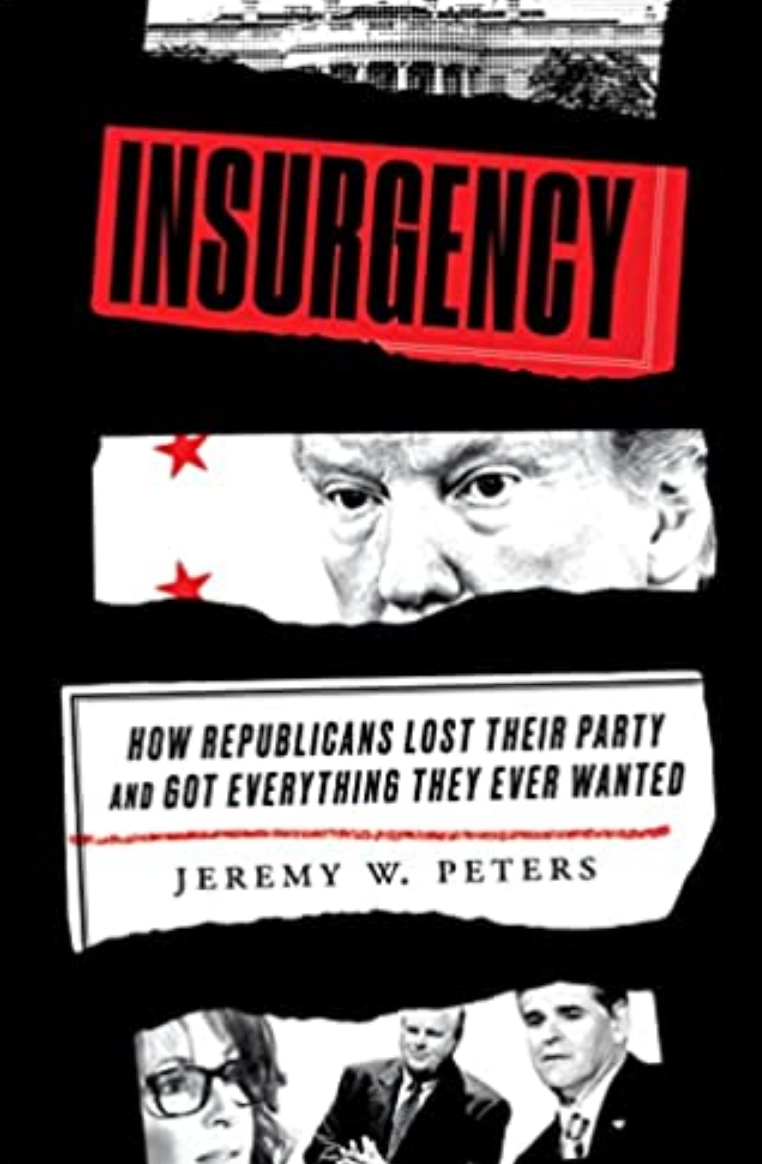5 HOT BOOKS: Republicans Gone Wild, an Interracial Alliance Promoting Abolition, and More
/1. Insurgency: How Republicans Lost Their Party and Got Everything They Ever Wanted by Jeremy W. Peters (Crown)
How did the party of Abe and Nelson become that party of Donald? New York Times national correspondent Peters, a veteran of two presidential campaigns, draws on his previous coverage of politics and the news media to show how Trump strategized his appeal to right-wing media through Fox News and Breitbart to court the Tea Party voters who felt their importance. In his compelling narrative, Peters details Trump’s interest in Sarah Palin’s vice-presidential campaign and how she tapped into working-class rage and feelings of displacement.
2. The Color of Abolition: How a Printer, a Prophet, and a Contessa Moved a Nation by Linda Hirshman (Mariner)
Social movements and interracial alliances can make for tangled, sticky webs, but in exploring “the mechanics of activism,” Hirshman’s dynamic and dramatic book mixes questions of race, class, and gender in an engaging, original perspective on the abolition of slavery. Hirshman focuses on the alliance and then the break between William Lloyd Garrison, fiery publisher of The Liberator and fabled orator, and formerly enslaved Frederick Douglass. The alliance split, Hirshman deftly argues, largely because the arrival of wealthy, meddling Maria Weston Chapman (known as the Contessa) and “her Brahmin friends and relatives brought with them – into the abolition movement – the casual racism of the privileged class.” The Contessa, and her financial support of Garrison’s operation, set a collision course so that “the force of race and class combined to catapult Frederick Douglass out” of the Boston group and right into New York and the epicenter of the action. the center of the action in New York.
3. The Fifties: An Underground History by James R. Gaines (Simon & Schuster)
In his lively primer, Gaines, former editor of Time, People, and Life, focuses on dedicated activists of the 1950s who had a vision for a more just and equitable world. In a decade that brought Playboy, Father Knows Best, and Jack Kerouac’s On the Road, Gaines zeroes in on four themes and the idealists who brought those causes into the mainstream: gay rights, feminism, civil rights, and ecology (or, in more modern lingo, environmentalism). The brave leaders in Gaines’ finely shaped introduction to this era include Rachel Carson, Medgar Evers, and Pauli Murray, but in excavating this period, he also brings attention to less-known heroes like mathematician Norbert Wiener, originator of cybernetics; Harry Hay, who founded a gay rights advocacy group; and historian Gerda Lerner, whose pioneering work led to women’s studies curricula on campuses across America.
4. 100,000 First Bosses: My Unlikely Path as a 22-Year-Old Lawmaker by Will Haskell (Avid Reader)
In his well-titled, charming chronicle, Haskell recounts his successful campaign for Connecticut state senator in 2018, unseating the GOP incumbent of a district that had not elected a Democrat since 1973. His wonderfully self-deprecating account details how his college roommate served as campaign manager and his girlfriend’s mother as treasurer, only later benefiting from professional consultants, and how Haskell educated himself on local issues. (He wondered why trains were so slow and learned that their speed could be increased if bridges were repaired.) As a legislator, Haskell remained committed to issues like paid family leave, gun control, and especially affordable education. Haskell does not romanticize his experience, bringing wry humor and irreverence to, for instance, chapter headings like “Stop Calling Mitch McConnell. Start Calling Your State Representative.”
5. You Don’t Know Us Negroes and Other Essays by Zora Neale Hurston, edited and with an introduction by Henry Louis Gates Jr. and Genevieve West (Amistad/HarperCollins)
While Hurston may be best known for her classic novel, Their Eyes Were Watching God (1937), her essays deserve broad readership, and perhaps this handsome edition of her essays and journalism will extend her audience. Spanning three decades, this collection includes some unpublished works such as the title essay, which had been slated for publication in American Mercury in 1934, fearlessly writing: “The decade just past was the oleomargarine era in Negro writing.” In her fierce coverage in the Pittsburgh Courier of a criminal case in which Ruby McCollum, an affluent Black woman, is convicted of killing her lover, a white physician, Hurston takes aim at the unfair trial process and uncovers McCollum’s side of the story. This compendium of Hurston’s nonfiction radiates with her fearless iconoclasm.










